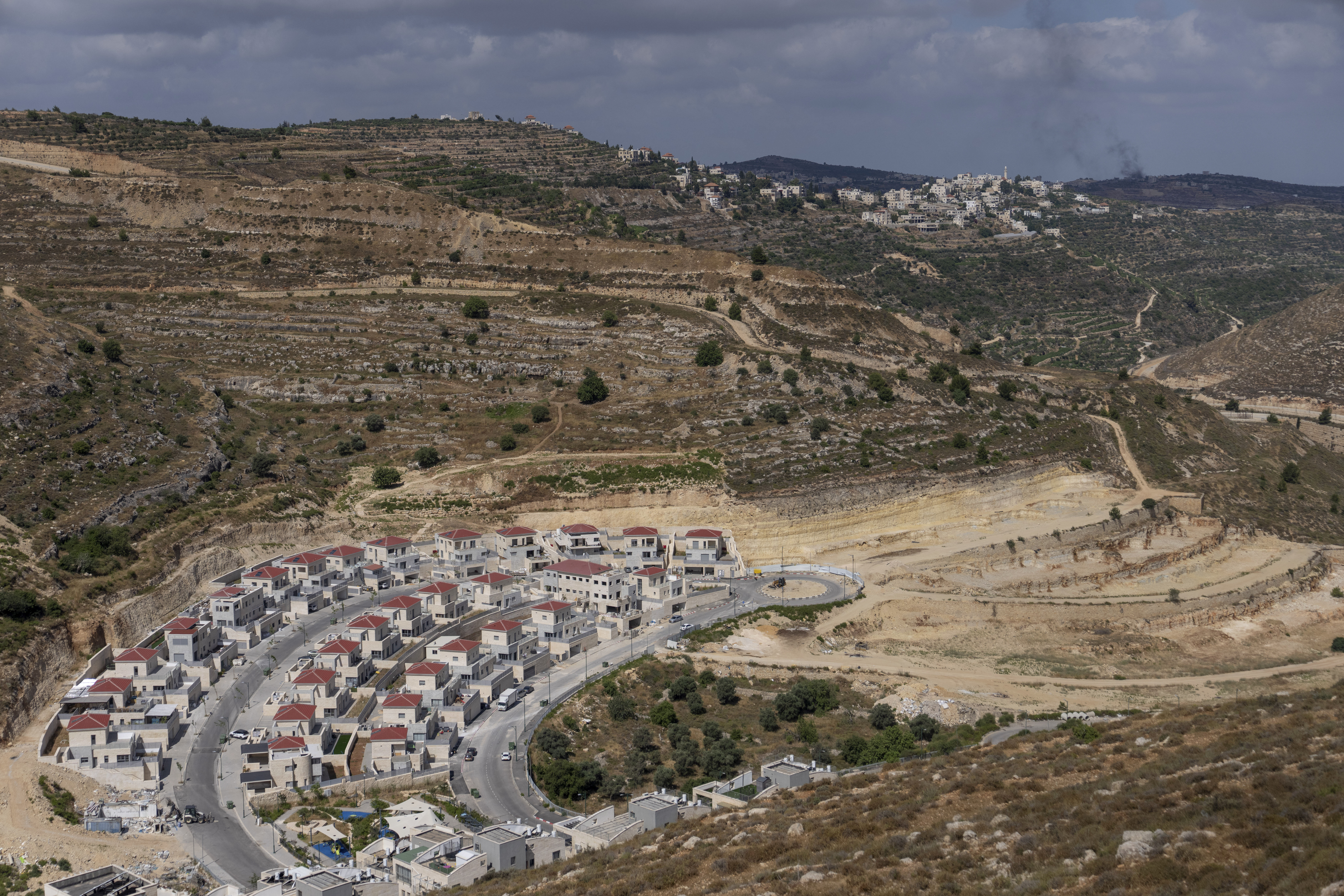
Israel’s far-right government has approved plans to build thousands of new homes in illegal Israeli settlements in the occupied West Bank, in a move that a Palestinian official decried as part of an “open war against the Palestinian people”.
The decision comes amid rising violence in the occupied territory and growing United States criticism of Israel’s settlement policies.
The Defence Ministry planning committee that oversees settlement construction approved more than 5,000 new settlement homes on Monday. The units are at various stages of planning, and it was not immediately clear when construction would begin. There was no immediate comment from the ministry.
The international community, along with the Palestinians, considers settlement construction illegal and an obstacle to peace. More than 700,000 Israelis live in the occupied West Bank and East Jerusalem – territories captured by Israel in 1967 and sought by the Palestinians for a future state.
“The Netanyahu government is moving forward with its aggression and open war against the Palestinian people,” said Wasel Abu Yousef, a Palestinian official in the occupied West Bank. “We affirm that all settler colonialism in all the occupied Palestinian territories is illegitimate and illegal.”
Israel’s government, which took office in late December, is dominated by religious and ultranationalist politicians with close ties to the settlement movement. Finance Minister Bezalel Smotrich, a firebrand settler leader, has been granted cabinet-level authority over settlement policies and has vowed to double the settler population in the occupied West Bank.
Al Jazeera’s Imran Khan, reporting from the Giv’at Ze’ev settlement in the occupied West Bank, said the news was “a very big victory for Smotrich”.
“Normally, to approve settlement expansion, there are six phases. They included things like security considerations, who was going to actually build the settlement, political considerations. At each of those stages, MKs – members of parliament [the Knesset] – and the international community could voice their concerns and often they would be slowed down,” Khan said.
“But last week the cabinet, led by Prime Minister Benjamin Netanyahu, streamlined that process completely and handed over almost complete control to Smotrich. He’s exercised that control today.”
Netanyahu’s government has made settlement expansion its top priority since he was re-elected in November.
Khan said 900 new buildings had been approved for construction in the illegal Giv’at Ze’ev settlement.
“That is going to make this an even more permanent place than it already is,” Khan said. “Where I’m standing is supposed to be the state of Palestine if a two-state solution is ever agreed. But the frustrating thing for the Palestinians is that these settlements keep getting built. They have been ongoing since the 80s in quite significant chunks of the occupied West Bank.”
Rising violence
Senior members of the Israeli government have been pushing for increased construction and other measures to cement Israel’s control over the territory in response to a more than year-long wave of violence with the Palestinians.
Last week, at least seven Palestinians were killed and dozens of others were wounded after Israeli forces raided the Jenin refugee camp.
Following the raid, four Israelis were killed by two Palestinian gunmen who opened fire next to an illegal Jewish settlement.
Israel expanded its military activity in the occupied West Bank in early 2022 after a series of deadly Palestinian attacks.
At least 174 Palestinians have been killed by Israeli forces and settlers since the start of this year, according to the Palestinian Ministry of Health. Some 24 people have been killed in Palestinian attacks.
Israel captured the West Bank, east Jerusalem and the Gaza Strip in the 1967 Middle East war. The Palestinians claim all three territories for a future independent state.
United Nations Special Rapporteur on Palestine Francesca Albanese told Al Jazeera that international law has “a problem of enforcement”.
“There is a problem of double standards, because clearly when it comes to Palestine there is a cognitive dissonance especially among Western countries and reticence in applying the coercive measures and all the prohibitions that international law affords,” Albanese said.
The administration of US President Joe Biden has been increasingly outspoken in its criticism of Israel’s settlement policies.
US Department of State spokesman Matthew Miller said “we are deeply troubled” by the Israeli government’s latest decision.
“We are simply concerned by reports of changes to Israel’s system of settlement administration that expedite the planning and approval of settlements,” Miller said.
“We have communicated our concerns about settlements and increased settlement units directly to the Israeli government and I suspect they can figure out the proper implications.”
Earlier this month, US Secretary of State Antony Blinken called the settlements “an obstacle to the horizon of hope we seek” in a speech to the pro-Israel lobbying group the American Israel Public Affairs Committee.
Despite the criticism, the US has taken little action against Israel. In a sign of its displeasure, the White House has not yet invited Netanyahu for a visit – as is customary following Israeli elections.
And this week, the US said it would not transfer funds to Israeli institutions for science and technology research projects in the occupied West Bank. The decision restored a long-standing policy that had been canceled by the pro-settlement administration of former US President Donald Trump.
Ahead of Monday’s vote, Israeli cabinet Minister Issac Wasserlauf, a member of the far-right Jewish Power party, played down the disagreements with the US.
“I think the alliance with the US will remain,” he told the Army Radio station. “There are disagreements. We knew how to deal with them in the past.”







